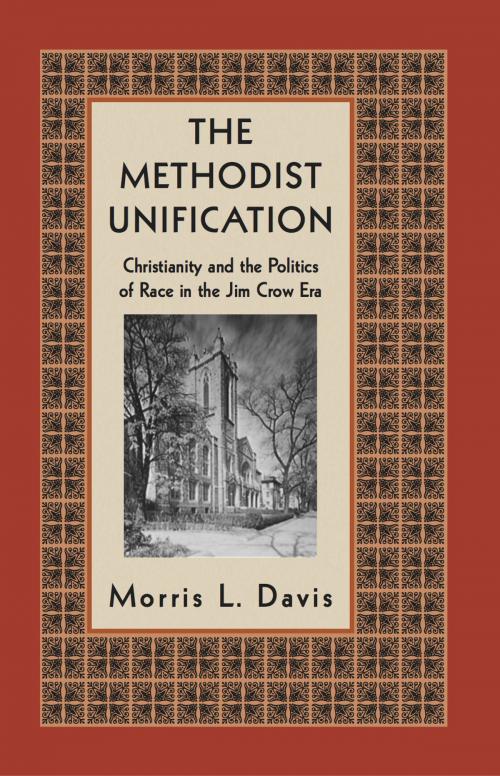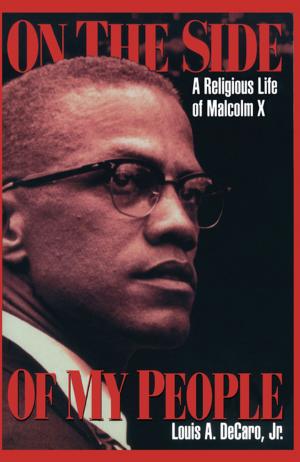The Methodist Unification
Christianity and the Politics of Race in the Jim Crow Era
Nonfiction, Religion & Spirituality, Christianity, Denominations, Methodism| Author: | Morris L. Davis | ISBN: | 9780814720318 |
| Publisher: | NYU Press | Publication: | January 1, 2008 |
| Imprint: | NYU Press | Language: | English |
| Author: | Morris L. Davis |
| ISBN: | 9780814720318 |
| Publisher: | NYU Press |
| Publication: | January 1, 2008 |
| Imprint: | NYU Press |
| Language: | English |
In the early part of the twentieth century, Methodists were seen by many Americans as the most powerful Christian group in the country. Ulysses S. Grant is rumored to have said that during his presidency there were three major political parties in the U.S., if you counted the Methodists.
The Methodist Unification focuses on the efforts among the Southern and Northern Methodist churches to create a unified national Methodist church, and how their plan for unification came to institutionalize racism and segregation in unprecedented ways. How did these Methodists conceive of what they had just formed as “united” when members in the church body were racially divided?
Moving the history of racial segregation among Christians beyond a simplistic narrative of racism, Morris L. Davis shows that Methodists in the early twentieth century - including high-profile African American clergy - were very much against racial equality, believing that mixing the races would lead to interracial marriages and threaten the social order of American society.
The Methodist Unification illuminates the religious culture of Methodism, Methodists' self-identification as the primary carriers of "American Christian Civilization," and their influence on the crystallization of whiteness during the Jim Crow Era as a legal category and cultural symbol.
In the early part of the twentieth century, Methodists were seen by many Americans as the most powerful Christian group in the country. Ulysses S. Grant is rumored to have said that during his presidency there were three major political parties in the U.S., if you counted the Methodists.
The Methodist Unification focuses on the efforts among the Southern and Northern Methodist churches to create a unified national Methodist church, and how their plan for unification came to institutionalize racism and segregation in unprecedented ways. How did these Methodists conceive of what they had just formed as “united” when members in the church body were racially divided?
Moving the history of racial segregation among Christians beyond a simplistic narrative of racism, Morris L. Davis shows that Methodists in the early twentieth century - including high-profile African American clergy - were very much against racial equality, believing that mixing the races would lead to interracial marriages and threaten the social order of American society.
The Methodist Unification illuminates the religious culture of Methodism, Methodists' self-identification as the primary carriers of "American Christian Civilization," and their influence on the crystallization of whiteness during the Jim Crow Era as a legal category and cultural symbol.















